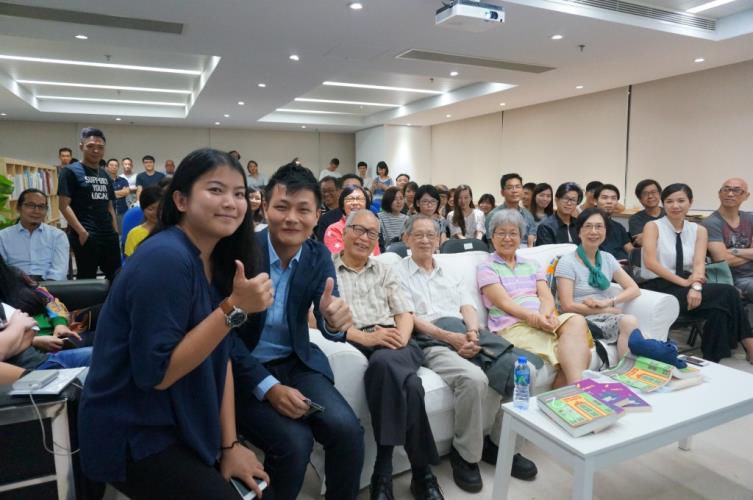Macao poet, novelist and columnist; winner of Macao Literary Awards (Fiction Category), and has won in other categories including Poetry and Prose. Published works include The Largo do São Domingos Countdown, a collection of his short stories; Ferris Wheel and A Fictional World, a collection of poetry and prose; and a series of promotional videos about Macao’s literature, co-published with other poets.

If the cinema is showing a Spanish film made by the artistically and commercially succeeded Pedro Almodóvar, I am certain it would attract the young enthusiasts. I would not have watched Relatos Salvajes (2014), despite the brilliant plot, if Almodóvar was not the producer of the film.
In Macao, the Macao Stories series seems to have made a similar reputation, especially after the release of the highly acclaimed Macao Stories 3. I believe everyone is looking forward to the new stories in the future. With the famous director and good stories, it is important to maintain the high standard of the series. Reputation can be gained fast but it can be gone fast as well. If the quality cannot be maintained, just like the poorly-made products from the country-you-know-which, there is little we can do to help.
As for the film adaptations from literature, which are actually an interactive gimmick for film promotion allowing the audience to know about the original story. It is a common tactic for the film industry to benefit each other since a long time ago. Adapting films from best-sellers is the recent trend in Hollywood because the audience usually tend to assume the adaption would be good. After the film becomes a blockbuster, the publisher will reprint the original story with “now a major blockbuster” on the new book cover. It is very much like why the Nobel Prize-winning writers are selling more books after being awarded.
Recently, the screening of When Felicity Calls, a micro-film adaptation from a short story of mine, attracted over a hundred audiences. Aiming to promote Macao literature, the film was written and directed by Emily Chan Nga Lei, one of the most popular film icons this summer in town. The original story is about a young writer takes part in the Literary Award out of love. Writers of different generations in Macao guest starred in the film, also works of literature were mentioned. In addition, the film score was written by the Macao independent band aRiejohn, lyric based on GaAya Cheang, a Macao poet and my writings. The up-and-coming Macao-based fashion designer, Chantelle Cheang and the Macao illustrator Lin Ge wer responsibility for art design and film poster respectively. The filmmaker joined forces with these great individuals not only made a good team, but also left an impression.
As a matter of fact, this approach is not something new. When Alfred Hitchcock was making Strangers on a Train (1951), the original author P. Highsmith was still a newbie. For fear that the film might not sell well, Hitchcock involved a well-known novelist Raymond Chandler in the screen writing process. Unfortunately, Hitchcock and Chandler had a falling out during the production and Ben Hecht, a famous screenwriter took over. He, too feared that the newbie writer’s work might not be appreciated by the audience, thus an assistant of him was asked to write the screenplay. The film was a huge success with Chandler still listed as screenwriter. It was unfortunate that the film had ruined the relationship between Hitchcock and Chandler, nevertheless, Highsmith the author and Czenzi Ormonde the screenwriter were both benefited by selling a lot more books and gaining more opportunities.
(When literature encounters movies; when movies encounter literature series–Part 2)